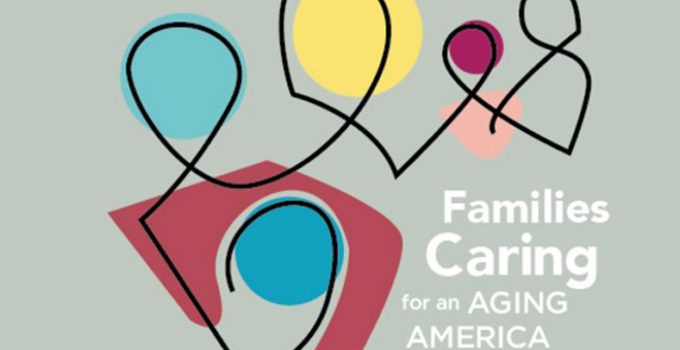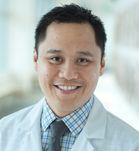

The Hidden Plight of Family Caregivers
by Marlon Saria
If this is the first time you are hearing that November is National Family Caregivers Month, you are not alone. Many Americans, including professional healthcare providers, are not aware that there is a month designated to promoting national recognition of family caregivers. President Clinton signed the first National Family Caregivers Month Proclamation in 1997 and every president since has followed the tradition.
“Our Nation was founded on the fundamental ideal that we all do better when we look out for one another, and every day, millions of Americans from every walk of life balance their own needs with those of their loved ones as caregivers. During National Family Caregivers Month, we reaffirm our support for those who give of themselves to be there for their family, friends, and neighbors in challenging times, and we pledge to carry forward the progress we have made in our health care system and workplaces to give caregivers the resources and flexibility they need.”
President Barack Obama,
National Family Caregivers Month Proclamation (2016)
Family caregivers provide increasingly complex health care support previously delivered by licensed health care providers. Despite the integral role that family caregivers play, they can be marginalized or ignored in the delivery of health care. Many times, these same providers who exclude them from brain cancer treatment decisions and care planning require their help and availability to perform a wide range of tasks included in the patient’s plan of care.
This along with more detailed information is highlighted in a recent report, Families Caring for an Aging America, released by the National Academies of Sciences, Engineering and Medicine. While there are no significant new findings and earth-shattering recommendations, the report provides a clearer direction for healthcare professionals and researchers to strengthen America’s family caregivers.
 There is an increasing need to integrate family caregivers support into the care provided by health care networks and systems, especially in cancer care. Despite remarkable milestones in cancer prevention, early detection, and treatment, many still encounter the catastrophic experience of a cancer diagnosis. After diagnosis, patients and caregivers are thrust on a journey where they encounter the cognitive, psychosocial, emotional, physical and practical consequences of the disease and its treatment. The diagnosis of cancer, in and of itself, can lead to significant changes in all aspects of patients’ and caregivers’ lives.
There is an increasing need to integrate family caregivers support into the care provided by health care networks and systems, especially in cancer care. Despite remarkable milestones in cancer prevention, early detection, and treatment, many still encounter the catastrophic experience of a cancer diagnosis. After diagnosis, patients and caregivers are thrust on a journey where they encounter the cognitive, psychosocial, emotional, physical and practical consequences of the disease and its treatment. The diagnosis of cancer, in and of itself, can lead to significant changes in all aspects of patients’ and caregivers’ lives.
The cancer caregiving experience can be distinguished from caregiving for other chronic conditions by the rapid and unpredictable deterioration of the health of the patient with cancer. Cancer is unique in that the clinical course can be marked by active disease, followed by prolonged remission that may be abruptly interrupted by recurrence, metastases, or a new primary disease. In addition, cancer caregivers have been reported to spend more time in caregiving, provide higher acuity care within a shorter time frame, and are predisposed to higher financial burden than the caregivers of persons with other diseases.
At the Center for Quality Outcomes and Research (CQOR) in the Department of Translational Neurosciences and Neurotherapeutics at the Saint John’s Cancer Institute, we examined the burden of caregiving in family caregivers of patients whose primary cancer has spread to the brain. In this study, we examined the relationship of burden to the caregiver’s psychological health as well as how cognitive impairment in patients can impact caregiver resilience and utilization of different coping strategies.
 In the age of precision medicine, the care of the caregiver is several years behind the powerful advances in the diagnosis and treatment of brain cancer. Our team believes that a well-being assessment of family caregivers needs to be integrated into the standard of care, as implemented in centers of excellence such as Pacific Brain Tumor Center. Studies forthcoming from the CQOR will build on our previous research exploring variables of caregiver burden within the context of brain tumors and extrapolating to a more global setting through use of a web-based registry and data repository. Additionally, the research team will identify the factors that cause burden, relationship conflicts in the patient-caregiver dyads and among other members of the household, and financial toxicity, in caregivers of patients with cancer. More importantly, the team is developing a caregiver clinical program that will provide an individualized plan of care for caregivers, including respite for caregivers, supplemental services, interventions to reduce burden and improve health. This is precision caring.
In the age of precision medicine, the care of the caregiver is several years behind the powerful advances in the diagnosis and treatment of brain cancer. Our team believes that a well-being assessment of family caregivers needs to be integrated into the standard of care, as implemented in centers of excellence such as Pacific Brain Tumor Center. Studies forthcoming from the CQOR will build on our previous research exploring variables of caregiver burden within the context of brain tumors and extrapolating to a more global setting through use of a web-based registry and data repository. Additionally, the research team will identify the factors that cause burden, relationship conflicts in the patient-caregiver dyads and among other members of the household, and financial toxicity, in caregivers of patients with cancer. More importantly, the team is developing a caregiver clinical program that will provide an individualized plan of care for caregivers, including respite for caregivers, supplemental services, interventions to reduce burden and improve health. This is precision caring.
If you are interested in learning more about this essential new program, please contact Dr. Marlon Garzo Saria at SariaM@jwci.org. More information about our other research programs can be found at PacificNeuroResearch.org.
About the Author

Marlon Saria
Marlon Garzo Saria, PhD, RN, AOCNS, FAAN, is an oncology clinical nurse specialist and nurse scientist for the Inpatient Oncology and Caritas concierge suites at Providence Saint John’s Health Center in Santa Monica, California. He is an Assistant Professor of Neurosciences and Neurotherapeutics and Director of the Center for Quality Outcomes and Research at Pacific Neuroscience Institute and Saint John’s Cancer Institute. Dr. Saria serves in the Nurse Corps of the U.S. Air Force Reserve as a flight commander in the Aerospace Medical Squadron. He was inducted as a Fellow of the American Academy of Nursing in 2014.
Last updated: November 13th, 2019